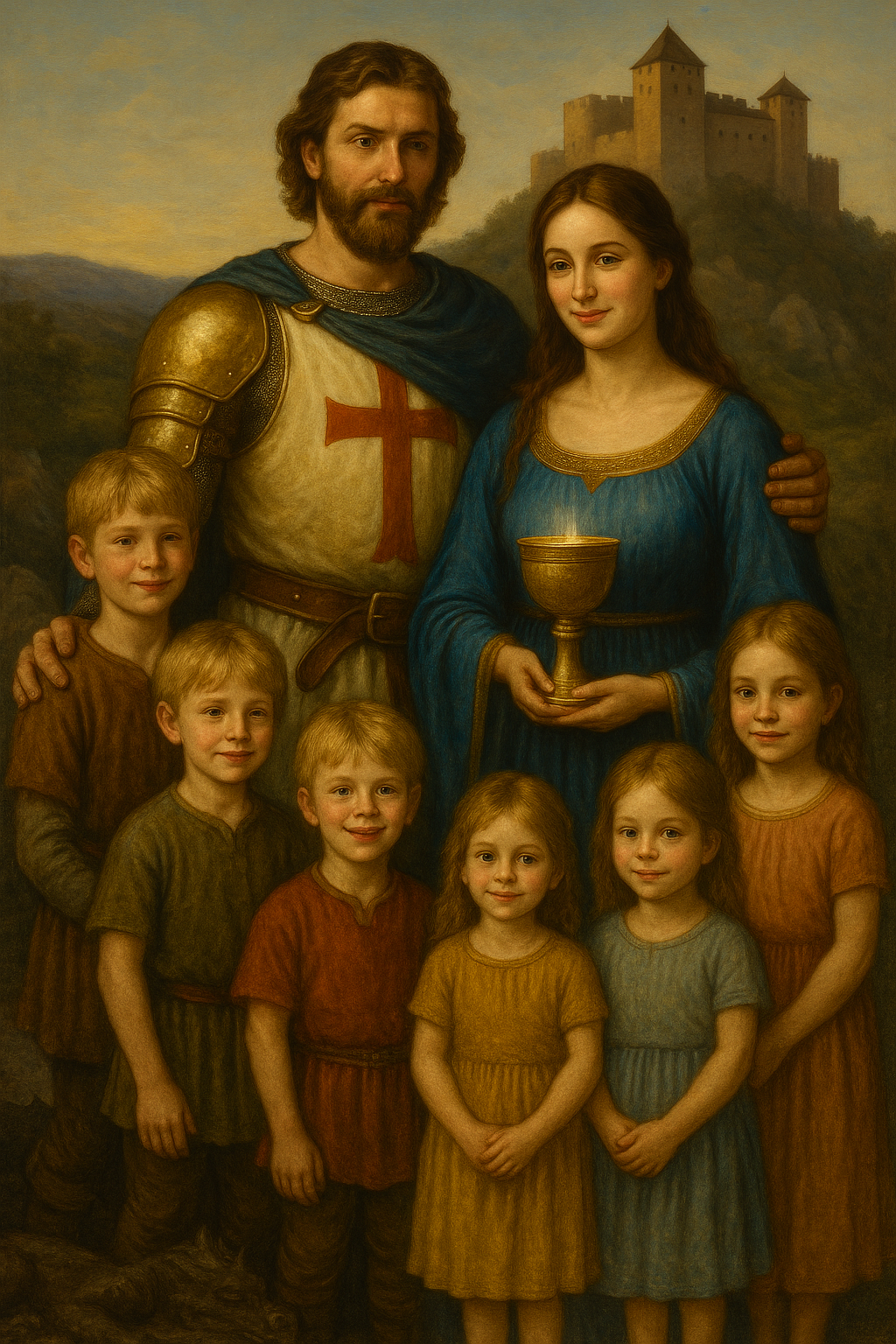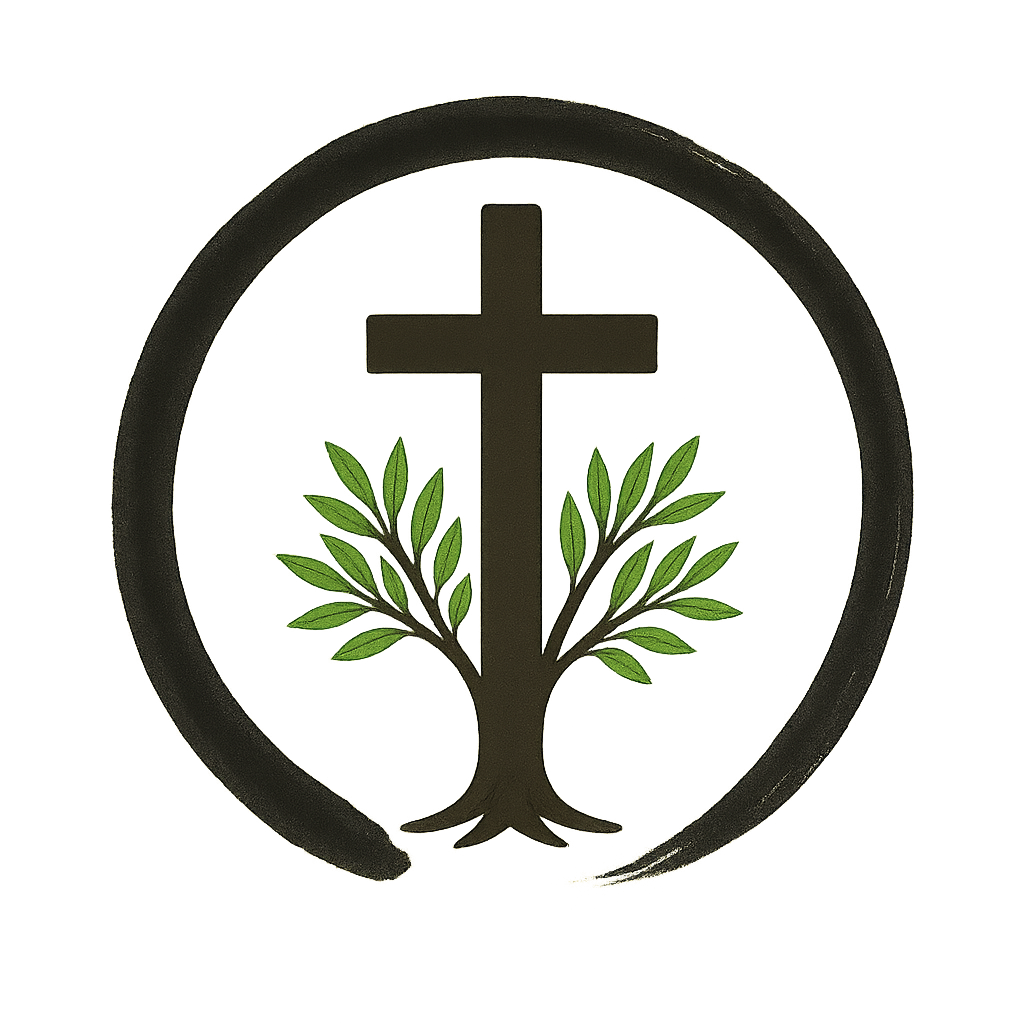The Resurrection of the Father – On Responsibility, Love, and the Rebirth of Masculinity
For generations, the father has been at rest. Not dead—only asleep. His gaze, once watchful and guiding, has grown weary from noise, work, and distractions. He withdrew into the shadows, and systems, institutions, and machines took his place.
1. The Father's Sleep
Yet no law, no algorithm, no technology can replace what a father conveys with a word, a glance, a silent hand: blessing, direction, protection.
C. G. Jung saw in the father an ancient, archetypal principle—the order, the word, the light that gives form. Where this archetype is suppressed, chaos arises: the maternal loses its support, the child its direction, and the man himself.
Thus, the modern world is full of sons who never became fathers because they were never initiated. The consequence: an age without inner fathers, without measure, without spiritual orientation.
2. The Path of Man's Initiation
No man becomes a father simply by begetting children—but by bearing responsibility. This doesn't happen by chance, but through initiation—through trials, sacrifice, and awareness.
In all ancient cultures, the boy was taken from his mother's embrace and led out into the wilderness, silence, and darkness. He had to overcome fear, to touch chaos, in order to find himself.
This symbolic separation is not a rejection of the mother, but the birth of the spirit from the womb of the earth. Only those who traverse darkness can carry light. Jung described this process as the individuation process—the path by which man finds his wholeness by uniting shadow, instinct, and spirit within himself.
Thus, man—not against the feminine, but through the feminine—is led to himself. He leaves his mother to become a father to the world.
3. Marriage – A Union of Opposites
When a man undergoes this transformation, he becomes capable of marriage – not as a contract, but as a sacrament. To marry means to sacrifice one's own limitations in order to become part of a greater whole.
Man and woman do not stand opposite each other as adversaries, but as mirrors and complements. Where they unite, something new emerges – a space that bestows healing.
Therefore a man shall leave his father and mother and hold fast to his wife, and they shall become one flesh. (Genesis 2:24)
This unity arises not from equality, but from the harmonization of opposites. The masculine gives direction, the feminine gives life. The masculine forms, the feminine receives. Both need each other – without one, the world petrifies; without the other, it disintegrates.
4. The Father as Guardian of the Spirit
The father's role is not primarily material, but spiritual. He is the guardian of the mind, the keeper of truth, the teacher of measure.
He not only provides bread, but ensures that the bread remains holy. He protects not only the body of his family, but also their spirit from confusion and falsehood.
Therefore, the father must watch: What enters the hearts of his children? What words, what images, what values nourish them? He must not be absent when the souls of his children are being formed.
Boundaries are not walls—they are sanctuaries of the soul. The father who sets clear boundaries opens the space for freedom.
I am the door; whoever enters through me will be saved. (John 10:9)
Thus, the father becomes the gateway between the world and eternity.
5. The Father's Protection
Where the father is absent, the protective wall against the chaos of the world is missing. The children and the wife then stand naked and defenseless against the forces that penetrate the house and the soul—fear, confusion, meaninglessness.
The father is the guardian of the threshold between inner and outer worlds. He bears the responsibility of preserving the sacred within and keeping the profane out. Therefore, his presence is not only helpful but essential.
Without the father's spiritual protection, the family becomes permeable to the noisy, the fleeting, the corrosive. Then the naked world intrudes—with its images, its temptations, its unrest—and the child loses its innocence before it has matured into strength.
The woman carries life, but the man is to preserve it. Not through violence, but through clarity and composure.
Just as the walls of a monastery protect inner peace, so the father, with his spirit, should enclose the home. He is the gate through which the light enters, but also the threshold that keeps out the darkness.
The Lord is my strength and my shield;
my heart trusts in him, and I am helped. (Psalm 28:7)
Therefore, the father is not merely a provider, but a spiritual guardian. Where he prays, the family stands firm. Where he remains silent and flees, it is exposed to the forces of fear.
6. Technology and the Temptation of Convenience
Never before has humankind been so interconnected—and yet so uprooted. Technology has accelerated us, but not elevated us. It has increased knowledge, but not wisdom.
If the father doesn't awaken, the machine becomes the teacher, the institution the parent. Then systems replace conscience, and programs take over thinking.
The more technological the world becomes, the more human we must become. For the computer can calculate everything—but it cannot bless a heart, comfort a child, or safeguard truth.
Therefore, the return of the father is also a return to humanity: to presence, to responsibility, to relationship.
7. The Shadow of the Father
When man forgets his spiritual task, the feminine within and around him becomes unredeemed. What was once the source of life then becomes a dark power—the unconscious, wounded energy that Jung called the shadow of the anima.
Without the light of the father, the feminine transforms into fear, control, or overwhelm. Not because it is evil, but because it remains alone.
That is why woman suffers when man becomes blind. For she seeks in him the sun, the orientation that illuminates her own light.
Thus, the man must awaken—not to rule, but to see. For where the man sees, the woman can shine again.
8. The Resurrection of the Father
The resurrection of the father is not a historical event, but a spiritual process. It begins when the man resumes responsibility—not only for himself, but for all. When he recognizes that his strength lies in serving, that his sacrifice brings blessing, that his faithfulness heals.
The father rises when the man prays again. When he sets boundaries without destroying. When he educates without oppressing. When he loves without losing himself.
Whoever loses their life for my sake will find it. (Matthew 16:25)
Thus, the principle of fatherhood arises—not as power, but as service; not as domination, but as protection; not as the past, but as the future.
The father principle rises—not as power, but as service; not as domination, but as protection; not as the past, but as the future. 9. The New Covenant
The world doesn't need new systems, but fathers again. Men who once again know what they live for. Who bear responsibility because they love. Who lead because they are humble.
The Nigredo Monastery calls upon them: Awaken from the slumber of complacency. Learn to be teachers again, protectors, servants, priests of everyday life. Not eunuchs, but symbolic and biological fathers.
For one is many, and many are one. In the awakening of the individual man, the divine principle of the Father rises—in the family, in society, in the world.
And where the Father rises, the sacred returns.
10. Man as Guardian of Religion
The father is not only the keeper of the house, but also the guardian of the sacred. He carries in his soul the fire of the altar, which must not be extinguished when the world grows cold.
Where men lose faith, the community loses its backbone. For man stands in the image of the priest—he is called to offer sacrifices, to speak the word, to guard the truth.
C. G. Jung called this the Father-archetypal principle of the Logos—the power that orders, discerns, tests, and transforms chaos into light. Without this spirit, religion becomes mere feeling, and faith mere opinion.
Therefore, the Church needs men who are once again spiritually masculine—not hard, but steadfast; not proud, but clear; not domineering, but serving.
A monk, a priest, a father: all carry the same flame. They are called to maintain the connection between heaven and earth, so that the light may not be extinguished.
Watch and pray so that you will not fall into temptation. The spirit is willing, but the flesh is weak. (Matthew 26:41)
When men pray again, faith will be strong again. When they serve again,
the Church will shine again.
For without God, humanity falls back into the old night—into the paganism of the ego, into the cult of knowledge without wisdom, into progress without purpose.
But where the Father awakens in spirit, there the cross rises above the world. And man recognizes his true dignity: not to rule, but to preserve the sacred.
11. The Father's Choice - God or Wotan
God is not created, but choosen. Human beings do not become religious by nature, but through consciousness. They must decide whom they will serve—the spirit or the shadow, freedom or fear.
Thus, every man, every husband, every father faces this choice daily:
He can choose God—truth, order, meaning—or he will be chosen by the forces that guide him without his knowledge. Whoever does not choose God becomes a prisoner of chance. But whoever consciously surrenders to the divine becomes free—because he takes responsibility.
We see in this election the struggle between the divine Logos and the dark primal force of unconscious instinct, described as 'Wotan.' Wotan—the stormy, impulsive god of the North—represents unleashed masculinity without spirit, power without meaning, movement without purpose. He is the symbol of that psychic frenzy, how it controls humanity when it has lost God.
Therefore:
Whoever does not choose the true God will be devoured by the archetype Wotan—by unredeemed masculinity, which destroys what it loves. This is the true meaning of so-called “toxic masculinity”: the sacred is suppressed, and the shadow takes the crown.
But whoever chooses God becomes a son again—part of the divine order, capable of humility, responsibility, and love. Only those who recognize themselves as sons can become fathers. Only those who submit to God can rule justly and act humanely.
Whoever chooses God becomes free because they serve. Otherwise, Wotan chooses them, and they become slaves to their desires and lose their humanity.
When we choose God, we become righteous and responsible sons again—and the world begins to heal.
I have set before you life and death, blessings and curses;
choose life, that you may live. (Deuteronomy 30:19)

